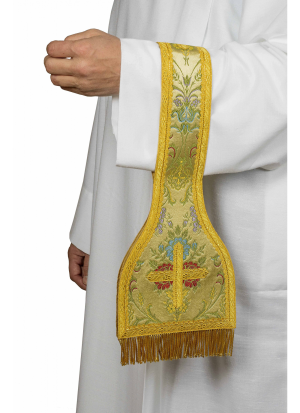OK - so this is one I have struggled with, and I love the Didache. "that your sacrifice may be pure." What is the sacrifice? Coming out of the RCC, they point to the sacrifice of the Mass - and I don't think it's the propitiatory sacrifice they say it is.
But what do you think?
What
@MarkRohfrietsch is good and right.
Perhaps I can add this — unfortunately, the Didache does not qualify what it means by "sacrifice", and there are competing theories about it. However, in my estimation, rather than reading into it doctrine that fits into a later Roman Catholic framework (for many reasons, one of which is that there is no concept of a papal office or even a threefold ecclesiastical order in the Didache), it's best understood in light of these Biblical passages:
Acts 2:42-1 — Here we see an excellent summary of early church worship, namely, devotion to apostolic doctrine (which is echoed in the Didache), fellowship (which implies a common confession of faith), the breaking of bread (the Eucharist), and the prayers (and in particular, the Lord's Prayer).
1 Corinthians 10:14-21 — This contrasts the Eucharist, the participation in Christ, with pagan sacrifice, the participation with demons.
1 Corinthians 5:7 — This explains what the sacrifice is: Christ, the Lamb of God, sacrificed once and for all, which God has done for us and communicates to us in the Eucharist according to His own power and promise.
Hebrews 13:15-16 — This talks about the kind of sacrifices we, the Church (whoever believes in Jesus), offer, which is not an unbloody sacrifice of Christ, but rather, praise and thanksgiving (cf. Psalm 50:23).
The excellent Rev. Dr. Kleinig offers some great insight here when he makes a distinction between praise and thanksgiving in this way: When we praise God, we make known God's good work of salvation to others. For just as when we praise people for what good things they've done, we don't typically praise them to their face, but we make their deeds known to others. This is exactly what Hebrews qualifies as a sacrifice of praise to God: "The fruit of lips that acknowledge His name." Thanksgiving, however, is directed to God, and these two things go together. So, in Christ, we give thanks to God for His creation, salvation, and for sustaining us, and all good gifts, and we proclaim the same to the world. This is something we see very clearly throughout the Psalms. For example:
"Oh give thanks to the LORD; call upon His name;
make known His deeds among the peoples!
Sing to Him, sing praises to Him;
tell of all His wondrous works!"
In this, we see that (1) salvation is entirely from God, and (2) that we give thanks to God by (a) giving our thanks to Him in prayer and (b) by proclaiming to the world His wondrous works of creation, salvation, and sustaining us.
So, the point the Didache is making is that we should confess our sins, both to God and to each other, as we see in the Lord's Prayer when we pray to God that He may "forgive us our sins as we forgive those who sin against us". In this way, we may come together as repentant sinners, united in the Lord, receiving His gift of Christ's body and blood and responding by offering up thanksgiving and praise.
It's good to note that the Didache uses the word "Eucharist" for the Lord's Supper, which is very appropriate and insightful, for "Eucharist" means "thanksgiving". And according to 1 Corinthians 11:26, by the same Eucharist, we proclaim the Lord's death. So, again, salvation from God, thanksgiving and praise from us. So, when we speak of the sacrifice, we can talk about it in terms of God's sacrifice for us, or our sacrifice of thanksgiving and praise to God.
God bless!

